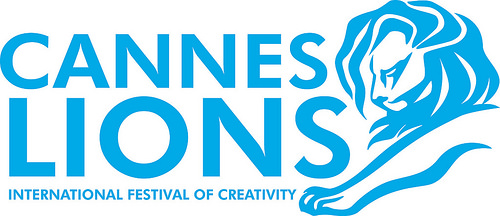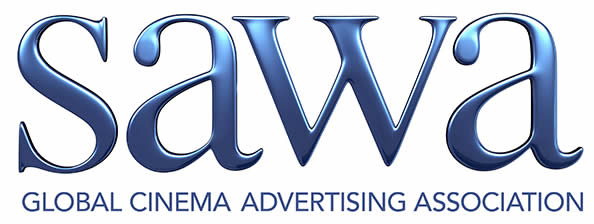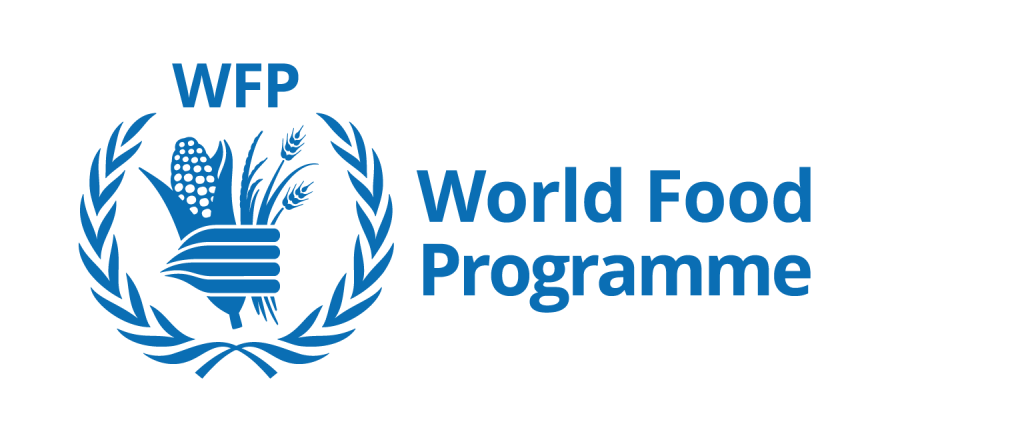Creativity is about bravery, commitment, and finding the best way to reach consumers. The UN World Food Programme is also about bravery, commitment, and finding the best way to reach the starving. Their workplace is not Soho or Manhattan—it’s Yemen, Syria and Somalia. This SAWA seminar is about how these two worlds interact using creativity to solve Sustainable Development Goal – Zero Hunger. See the launch of Global Cinema ad “Feed our Future” and hear the creative inspiration behind the work. The seminar will also discuss the “Share The Meal” app—a way for delegates to actively participate. A glass of rosé is part of the Cannes experience, but by giving just a sip away, you can help move the world closer to achieving this goal. Supported by: Cannes Lions, UN WFP, Dolby, Barco, Unique, NCM, Knowit, Finch
Featured guests




Special Thanks to:



Additional Resources

Share The Meal App
ShareTheMeal is an initiative of the United Nations World Food Programme (WFP). WFP is the world’s largest humanitarian agency fighting hunger. Each year, WFP reaches 80 million people with food assistance in around 80 countries. WFP is 100% voluntarily funded, so every donation counts. WFP’s administrative costs are among the lowest in the non-profit sector – with 90% of donations going directly to WFP operations that are building a world with zero hunger.
Transcript
Corinne Woods: 00:03 As a creative mind, you can contribute to your economy, to your family, your community to cinema, and this comes from nutrition. 91 million people we reach last year with food. We have 5,000 trucks on the road, 92 planes in the air, 77 helicopters to get to those places. We use donkeys, we use camels, we use boats.
HRH: 00:28 It’s not enough to build a school to provide a quality teacher, if we haven’t first provided these essential building blocks. If you are not caring for these first thousand days, you are putting a child with diminished cognitive ability in front of that teacher and so everything starts with nutrition at its heart.
New Speaker: 00:51 The majority of people today in the world are under 30. This generation want to engage with technology, they want the world to be, I’m sure a better, better place.
Claudia Romo Edelman: 01:05 This is the Global GoalsCast.
Edie Lush: 01:07 The podcast that asks if we can change the world.
New Speaker: 01:12 Thanks to Harmon, the official sound of Global GoalsCast.
Edie Lush: 01:18 On this episode. We’ve got a special lineup of guests here to talk about feeding the world’s hungry and starving population.
Claudia Romo Edelman: 01:23 We’re taking you back to the Cannes advertising festival for this panel that was hosted in partnership with this screen advertisement world association. MC and chair of the Cannes lion, Terry Savage, interviews panelists, Sir John Haggerty, Corinne Woods and Her Royal Highness, Princess Sarah Zeid of Jordan, about their work with the United Nations World Food Programme. Together, they discuss the importance of commitment, urgent action and creativity when it comes to feeding the 124 million hungry and starving people.
Edie Lush: 01:57 Over to them.
Terry Savage: 01:59 Good Morning Ladies and gentlemen. My name is Terry Savage. I’m chairman of Cannes Lions and I’m delighted that you could join us here this morning. I think really importantly, what we’re seeing is that the cinema, advertising media and when you’ve got the power of creativity linked with the biggest screen in the world, it tells a story like no other medium, and I say that because I suppose my life has been immersed into two things. One is creativity and in my life before Lion, it was indeed in the cinema advertising medium and SAWA the global trade body, for the medium of cinema have used this big screen to good effect in the last four years by supporting the causes for good that are so important today all around the world. Tens of millions of dollars worth of cinema advertising has been given by the individual member companies of the screen advertising world association all around the world. And this year they cause are supporting and there’s no worthier cause that exists on the planet than this is hunger and the World Food Program. We will be premiering during the seminar, the new film called Feed our Future created by Sir John Haggerty and Lynn Ramsey, the director. So look out for that later and the first person I want to introduce who really needs no introduction in this forum is to John Haggerty. So John has been central to the global advertising scene over six decades, was awarded a knighthood by the Queen in 2007 and was the first ever recipient, and that said something about how highly regarded he is of the Lion of St Mark award at the Cannes Festival of creativity in 2011. John now works with the garage Soho, an early stage investor company that he has built and is building brands, not just businesses. The United Nations World Food Program is on the front lines of some of the world’s most pressing crises, managing to reach those most in need. It’s a shocking fact that 3 million children, 3 million children, are still dying every year of hunger, yet still, their brand is not as well known as it should be around the planet. We welcome Corinne Woods, the chief marketing officer of the United Nations World Food Program. I’d now like to welcome our third guest who is joining us after flying in, especially for the seminar from World Food Program operations in Burundi, east Africa. Her Royal Highness, Princess of Jordan understands that the first thousand days are vital to a child’s mental and physical development. As a founding leader of ‘Every woman, every child,’ and now supporting the United Nations World Food Program, Her Royal Highness is a powerful advocate for nutrition and they supported the World Food Program’s effort to provide the major health challenges facing women, children and adolescents. Well, welcome all. John, I’m going to start with you, Cinema is an incredibly powerful medium as one of the foremost creative leaders in the world today. Why do you consistently use cinema?
Sir John: 05:45 I think in this sort of media saturated world, it a media where people go in, they wished to be entertained, that wish to engage, and it’s therefore very, very powerful. It drives culture. There’s no question about that. We talk about screen size today, don’t we? We talk about, you know, how big is your iPhone screen versus your Samsung screen versus you know, whatever screen it might be. Well, you know, I always say, the cinema has the mother of all screens, you know, if you want to screen, use that one and it’s a way of engaging people in storytelling that’s very, very powerful.
Terry Savage: 06:21 And the audience of cinema, very millennial driven, very generation themed rhythm. When they see stuff that we’re talking about here, do they care?
Sir John: 06:32 Well, I think. I think they do. An amazing fact, the majority of people today in the world are under 30. I think that’s absolutely incredible. We kind of forget that when we live, where we come from the Western world where that isn’t the case, obviously that’s probably why I’m here, but you know, that is an incredible fact that this generation want to engage with technology. They want to, in a sense, join social movements. They want the world to be, I’m sure a better, better place, so we’ve got to talk to them. We got to say, we can help make this world a better place and they’re going to be motivated to do so.
Terry Savage: 07:10 Thanks John. Corinne, as chief marketing officer at the United Nations World Food Programme, you spearhead the global launch of the Sustainable Development Goals when that happened, can you just tell us in your own words some of the on the ground feelings that you go through when you see this in real life?
Corinne Woods: 07:32 Well, the World Food Program the United Nations agency, the largest agency there is, and we’re the world’s first responder. We get to the places where people need us first. Now the situation is so difficult. There are 124 million people who tonight will go to bed hungry, starving, on the edge of death. Now what that means in reality is the woman that I met two months ago, who every night, she would put a pot of water on, put stones in the pot and boil the water pretending to her children she was cooking until they fell asleep because she had no food. It’s the woman I met two weeks ago in the Democratic Republic of Congo. They said, when I said, what did you eat yesterday? Nothing. What did you eat the day before? Nothing. What did you eat the day before? Nothing. What did you eat the day before? Nothing, and it’s the woman that binds her children’s stomachs every night, so they don’t feel the hunger pangs. Now, the World Food Program, we just get it done. We reach those people. 91 million people we reached last year with food. 91 million. We have 5,000 trucks on the road. 92 planes in the air. Seventy seven helicopters to get to those places. We use donkeys, We use camels, we use boats, any way to get there, we will get there. 17,000 staff who are risking their lives. Today in Yemen as there’s bombing in [inaudible], 13 million people at risk of starvation and we’re trying to get food in to 8 million of them while the bombing comes in. I’ve got 13 of my colleagues who are unloading three big ships with the food to get into a warehouse to get that food out. Even as last night I heard that they’d been surrounded by some of the warring parties and they were locked inside to protect that food. That’s what the World Food Program does, but none of you know us because we’re business to business.
Terry Savage: 09:45 It’s sort of Interesting. Because you mentioned the people locked in surrounded by troops and you know, we are in Cannes and we talk about creative bravery, commitment, finding the best way to reach the consumer. That gets, I guess you know the UN World Food Programme is about bravery, commitment and finding the best way to reach the starving, but on a scale they’re very, very, very different. But why do you think given we are in Cannes, that the creative community is so important to helping create the levels of awareness that are required?
Corinne Woods: 10:21 Well, the business case is simple, we bought in $7.1 billion last year to get what had to happen and that was governments. Ninety eight percent of our funding is government. No one knows us because we’ve always been talking to governments. Now, we need people. We need every person in this room to do something individually and we need the creativity to lift the stories that I see every day into the public consciousness. Storytelling is at our heart. We have authentic stories to tell about the brave people and those 13 people aren’t the only ones. People lose lives in the World Food Programme to do what we need to do. So we need that storytelling to be lifted and we need people to commit, but we need them to commit in the way that Sir John Haggerty has done, You yourself have done, the cinema medium has done. Words are nice, words crumble in the mouth, they disappear. The number of people who promise me things, as the chief marketing officer, I would have a room full. The number of people who deliver really persistently deliver, cinema has done this for the global goals over the last few years. Amazingly, brilliantly. And there people who’ve really done it. You know, I take my hat off. I met Richard Curtis, actually four weddings and a funeral. Everybody knows him and he said, I’m going to dedicate two years of my life to the SDGs, and I thought, well maybe he will, well maybe he won’t. He may be one of those- But he did that. Then he bought in Sir John Haggerty and they created the most amazing campaign and he talked to you and he talked to Cheryl Wannell. And suddenly we have cinema and all the members of cinema, that medium, to be able to drive our stories, but I need every person to do something.
Terry Savage: 12:07 Okay, but. But on that point, we are the festival of creativity, but anyone that’s walked up and down the [inaudible] in the last two days does notice this proliferation of media organizations, powerful media organization that are also here. Who’s talking to them? Why aren’t they engaging in the same way as the cinema advertising industry is engaged in really doing something other than putting signs up and down the [inaudible]
Speaker 6: 12:36 Well hopes springs eternal Terry. So I think there’s what has been done. What has been done? The SDG awards, what cinema has done. That’s been amazing. What is being promised and being done right now? Right now we have a fantastic Facebook team who are there coming up with a hack that makes this cinema campaign become real on digital. I want to find those guys who when won the Grand Prix last night with the heart campaign, which was beautiful to activate, but I want everybody to do something, but that’s now. The thing is though, this idea that don’t just say you’re going to do it, do it because you know what? I have a tiny, tiny budget. Why would my board give me more money? Because every time they take money from me, it means my country director doesn’t have the funding and his choices in Democratic Republic of Congo or Chad are to say, you can eat, you can eat, but you won’t eat. That’s the choice, so they’re not going to give me a lot of money so they send me to places like here to say, can we get another Sir John Haggerty, but every time someone talks to me and says I’ll do something and then doesn’t deliver, that is wasting my time because honestly we’ve got to get that delivery because it’s children’s lives that are at stake and the potential of our world
Terry Savage: 13:59 Well, all I say to any media owners sitting in the audience here that there’s an amazing cause you should be engaging with and if you get anywhere near close to it, you will engage with it because it is absolutely a heartbreaking issue once you look under the bonnet, there is real real things to do here.
Terry Savage: 14:29 Your Royal Highness, you are a longstanding advocate of women’s new born child and adolescent health and the World Food Program’s efforts. You’ve just come back amazingly, you’ve come from there to here. You’ve come back from the World Food Program operations in Burundi and the Democratic Republic of Congo. Can you tell us about some of the realities that you see on the ground there?
HRH: 14:50 You’re right. I arrived yesterday from a packed and amazing seven days with the WFP operations in Burundi and the DRC, and just in case you’re not overly familiar with these two countries, the Congo is massive. A population of 80 million living in a landmass four times larger than France and 27 times bigger than Jordan, where I’m from. DRC infrastructure and roads, are largely nonexistent, which makes reaching the 13 million people in need of humanitarian assistance, delivering goods and quality services, exceedingly difficult. WFP trucks in the rainy season get bogged down in the mud for months at a time trying to get to their destination. And just recently a truck came back covered in arrows and looking like, a little bit like a hedgehog because it’d be an attack as it was trying to get to its destination. Nine countries share a border with DRC and Burundi is one of them, a country the same size as Switzerland, but with 3 million more people and a very high birthrate. Like Switzerland, Burundi is breathtakingly beautiful, but in the same moment, it is also heartbreaking. In the DRC, a convergence of conflict, insecurity, displacement, and poverty has created this perfect nutrition storm with 3.3 million children under five at death’s door, if treatment is not received. Another 4.6 million are acutely malnourished and over 40 percent are chronically malnourished. What does this mean and why should you care? Because it means that millions of Congolese children and their desperate parents exist in a permanent daily battle for survival one day to the next day to the next day, and ultimately it means the beginning of the end. In a child’s life, there’s this incredible window of opportunity which is the first thousand days from conception to second birthday, and if we miss this, we see cognitive impairment, we see loss of productivity, we see physical impairment that goes from generation to generation, and this has tremendous impact on an individual life and on the future of a country. In Burundi, again, this tiny little country whose population is going to double to 22 million in the next 17 years. Burundi has the highest levels of chronic malnutrition in the world and by not meeting the nutritional needs of mothers and their children, we are condemning them to a lesser existence. We are jeopardizing and not feeding our collective future.
Terry Savage: 17:44 In terms of the relevance of the creative community, one of the things that sort of interests me is that you deal with governments, you deal with the private sector, you deal with civil society, but it seems to me there’s an ambivalence of people, no matter that’s just an outside observation. Just meand you, and you, and you, we don’t seem to be doing anything about this, we’re relying on government, we’re relying on the big end of town. What can we do to get the small end of town engaged?
HRH: 18:21 But this is why we need you. We need you so badly because you are the people that can change this and you have the skillset and the expertise to move people to make them care, to make them understand why the health and wellbeing, why the lives of people that seems so far away matter to you, to me. You didn’t hear this from me, but I’m not very impressed with a number of governments at the moment and so change is going to come from us. It’s going to come from the creative industries. It’s going to come from the private sector. It’s going to come from one person who steps up, commits and makes a difference like you gentlemen have. If you think with your head, your heart or your wallet, joining us to try and get sustained commitment and caring is absolutely the right thing to do because this is going to take us all down and we have to start acting years ago. The only way we can catch up is if we do it together.
Terry Savage: 19:36 John, So much clutter, so many courses, so many different messages to get out there and you did the first global cinema advertising campaign in 2015 for Sustainable development goals and we have a plan. How do you break through this clutter? Do we just close the whole lot down or give up, go home.
Sir John: 19:59 We obviously can’t give up. We obviously can’t go home and Her royal highnesses said the creative community. We as individuals have got to step up to the plate. We have got to use our skills, our creativity, our understanding of how to market brands and bring that to the charity sector and I think it’s absolutely crucial and I think the point about governments, if we rely on governments to do it, it won’t happen. The pressure has got to come from below and force them up. And I think we can do that. We can take those fantastic schools that we’ve developed. Nothing wrong with selling jeans, nothing wrong with selling cars, nothing wrong with selling soap, but we’ve honed these skills, we’ve honed this ability to do these things. Now please can we start applying that not to win an award, but to genuinely build a brand because that’s what Corinne and her team need. They need to be a brand that people can relate to and therefore get greater and greater commitment from the audience at large. So we’ve got to use those skills to do that.
Terry Savage: 21:05 I’m going to just call out because I think it deserves recognition once small because we’re now going to move forward, but I do want to recognize the many cinema advertising companies, globally, that have actually done something about this problem. It’s not just an easy giveaway. It doesn’t just happen overnight. They have worked at it and they’re committed to it and they should be recognized for that. Yeah, but John, I think it’s good, a good time to have a look at the latest commercial that you’ve made. Just tell us a little bit about the inspiration before we.
Sir John: 21:45 Well, I think when you’re approached with a problem like this, I mean first of all, you sort of go,, this has got to be good. Oh my God. But I think that, you know, again, you apply those brand principles, don’t know. You kind of go, what is everybody else doing out there? How can we be different? The fundamental point of a brand is to be different. There’s no point being the same as everybody else because then why have everybody else doing it? So the first thing you do is you look at how can we be different? So you kind of go, oh, of course you know, one could write something with starving children and it will be very emotive and we’d all feel sad for it, but we wouldn’t necessarily commit to it. We said to ourselves, we’ve got to find a message that actually one, yes, it touches the heart strings, but also it connects back to me sitting in my comfortable world in Paris, London, New York, Brazil, wherever it might be. It relates back to me. So that was the motivating force behind the idea. How can I create something that was going to say, Oh God, this really does affect me, not just, Oh, I should be doing something about it. And of course if you’re then using cinema, as I say the mother of all screens, and we’re lucky that SAWA have stepped up to the plate and given all this free air time, which creates the opportunity. This is the beginning of a journey for the UN and the world food program about feeding our future. And when I say our future, I mean ours as well.
Terry Savage: 23:23 The credit community actually are very generous in relation to a lot of the work they do. So it’s the media organizations that need to step up. But one of the questions that I often have is, given everything’s pro bono or the vast majority of the work’s pro bono, you’re dealing with different people all the time. How do you actually build brand continuity when you’ve got no budgets, you’re talking to him today, then tomorrow, then the next day, how can you actually expect to build brand continuity if you do that?
Corinne Woods: 23:58 In a way the relationship that we’ve had with Sir John and with the cinema medium has been, let’s start with a brief and a single thought and then the brand continuity has to be built around that thought. So we’re extraordinarily disciplined at saying, let’s make sure the brand of WFP is there always. We’re brave, we’re bold, we’re humanist. It’s got to run like a stream through everything we do. And then this single idea will then run through everything that we’ll be doing in this period. So there’s a discipline of being chief marketing officer, not chief grateful officer, and then we’ve got to be very clear who are we talking to. Extremely clear who we’re talking to, so that we know that for the share the meal, it’s millennials, but millennials with a particular persona. I’m super excited about India. India is the second most place where we’re actually getting downloads for the app. I worked in India for five years. India has a tremendous problem with malnutrition, but it also has one of the richest populations, the largest middle class, and so your 30 you know, your under thirties. Most of them are in Africa, India, and the places where we’re also working.
Terry Savage: 25:18 Let’s have a look at the latest film for the World Food Program ideated by Sir John Haggerty. Thank you.
Commercial: 25:26 Her discoveries could actually save up to a million lives every year. But, there is no discovery, there’s no breakthrough. I did not go to medical school. I did not get an education. I died of hunger at the age of eight.
Terry Savage: 26:20 And that execution will be screened in cinemas all around the world later in the year. And I think it’s a great, a great execution, very powerful. It looks great on the big screen. Your Royal Highness, given the role you play in every woman, every child I imagine this ad in particular will resonate very closely with you. How does access adequate food and nutrition impact the potential for a child to achieve his or her dreams? And I don’t mean just in terms of being hungry. I mean in terms of the actual manifestation of lack and having that causes later in life, if there is a life, yeah.
HRH: 27:00 If there is a life. It’s not enough to feed people so that they don’t starve. It’s not enough to survive. Sometimes surviving is the easy bit. It’s about quality of life. It’s about thriving so that you can make a contribution so that as a mother you can care for your children. As a creative mind, you can contribute to your economy, to your family, your community to cinema. And this comes from nutrition. It comes from having enough iron as a woman so that you’re not anemic and you don’t bleed out when you give birth. It comes from again, these crucial first thousand days. So we have to make sure that our girls are healthy and that our women are healthy so that they can produce healthy children, so that they can care for fed children and without this crucial step, everything else is doomed to be less than it should be. It’s not enough to build a school to provide a quality teacher if we haven’t first provided these essential building blocks. If you are not caring for these first thousand days, you all putting a child with diminished cognitive ability in front of that teacher and so everything starts with nutrition at its heart. And as parents, if you have children, you know this in your everyday life as you raised your children, you are sitting there battling over the eating their greens. You all worried about what they’re having for lunch and if they’re tired, you take them off to give them a cup of tea or something to eat. In our daily lives, we know all of this. We just have to think about other people’s lives as well and everyone has a role to play in this and everyone can make a difference. One of the funny expressions that I heard recently was that if you don’t believe that one person can make a difference, you haven’t spent a night in the room with a mosquito. And so we all have to be mosquitoes in our own families and our own communities and as a collective, to try and get commitment and consideration and understanding about why we know these things matter for ourselves and for everybody else out there.
Terry Savage: 29:27 Thank you. For those of you that are not aware, we actually introduced into Cannes this year an SDG category. We received over 900 entries into the SDG category and to show you that Cannes is also making its contribution. We are in fact giving all of those entry fees to charities related with the 17 goals. Look at the fact that, hey guys, if we don’t achieve these goals by 2030, then the planet is not going to come back into the place we all needed to be into the future. And Corinne on that point, I understand the sensitivities of being a non government organization, but you’ve got to build your brand. You got to push your brand. What’s the problem in relation to actually taking money to invest in building that brand? Is it just too sensitive the subject given that people are starving, people are dying, that you can’t actually be seen to be spending money to get the message out there, as opposed to the pro bono aspects of it all.
Corinne Woods: 30:38 I think the question is is 98 percent of our funding comes from governments. When the German government or indeed the current US government give us $1 billion or $2 billion, they are giving it because they know there’s a need in Syria, there’s a need in Somalia. They’re looking at that 13 million people in one country, 14 million people in another country, and then the question is always, so why are you going out and then spending money on marketing, why would you do that and in fact, my board is meeting this week and the reason my executive director can’t be here is because our board is meeting this week. And we have a new emergency in the Sahel. So there’s always that very difficult question about so why would you invest where we are at this moment in the World Food program is we invest, but what they’re saying to me is we’re going to invest, but we want to return on investment, but my return on investment is going to be how many Sir John Haggertys, can I get to do amazing campaigns? How many of the cinema medium can I get to really drive this campaign out? My return on investment is, can I actually get other platforms to deliver and can I get, funnily enough, my brand built and a partner who can actually measure my brand? So what the World Food Program is saying is we want to invest in you, will invest in you as chief marketing officer, but we can’t give you $30 million, $40 million, $50 million, $200 million, we’ll give you the money to go out and build these partnerships and deliver these things because we know that if you can work with the best in the world, they’ll take our stories, they’ll take the reality of our life and they’ll take that out to people and people will care and act. And that’s the way we think about it in terms of how we do this. So that’s probably the question also about pro bono. When we think about pro bono, we think about it as a partnership, which is a real partnership of client to agency platform to platform, understanding where we’re coming from and making we deliver together so that it’s always at the highest possible moment. I take phone calls, as you know, from the SAWA cinema medium, 2:00 in the morning, 3:00 in the morning, it’s either Yemen or SAWA who were on the phone to me saying, we need to sort things out and I’m going to do that because I see how precious that commitment is, how valuable that commitment is, and unless I invest as chief marketing officer, unless my team invest, the commitment has to go both ways. It’s just it doesn’t come with a big bag of money that’s beautifully placed.
Terry Savage: 33:24 On that point because we are getting towards the end, I just want to say this that we know what Cannes is like, its an amazing experience. We’re paying 15, 20 euros for a glass of rose and we sip away. Just one sip of that rose, will feed a child for a day, so let’s be really conscious for the rest of this week when we’re sipping that one or two or three that we should be downloading. We should be conscious. We should be spreading the word being like the cinema advertising medium and actually doing something seriously positive about it. Let’s download the app. Let’s make a contribution to helping these people, and this is sort of a bit off script, but I’m just going to ask you three words that you want to say this, but you’re only allowed three words, three words you want to say to the audience, that goes to the heart of what we’re trying to achieve here today. Other than cinema advertising media.
Sir John: 34:32 Download the app are the only three words we need.
Corinne Woods: 34:41 I’ve got one word: commit, commit, commit,
Terry Savage: 34:47 Your Highness
HRH: 34:48 Care and act. Is act considered a word?
Terry Savage: 34:57 I’m not sure, don’t ask an Australia. Okay guys, thank you very much for being here today. I hope the takeout is not just about great creativity, not just about the power of the cinema advertising medium, but also for the fact it’s a very, very real cause. They are real people. They need help. Whether it’s today in Cannes or after Cannes, we should do our very best to give them the help, not to buy a house, not to buy a car, just to live, and that’s the least that we should be able to do. I’d like to thank our speakers for being here today. I’d like to thank our supporters, and I’d like to think that in a small way what we’ve done here today will make a difference towards helping feed some of these starving people. Thank you very much indeed. Thank you.
New Speaker: 36:10 Thank you to Terry Savage and the panelists, Sir John Haggerty, Corinne Woods and Her Royal Highness, Princess Sarah Zeid of Jordan. If you want to find out more about the Share the Meal app and other topics discussed in this episode, please go to our website at www.globalgoalscast.org
